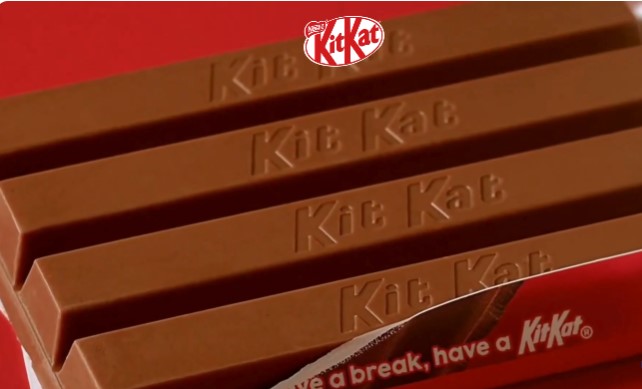Is Kitkat Halal
KitKat, the popular chocolate-covered wafer bar, has been a favorite treat for people around the world for decades. Its distinctive taste and satisfying crunch have made it a staple in candy aisles and vending machines everywhere. However, for many Muslims, the question of whether KitKat is halal, meaning permissible according to Islamic law, is of paramount importance. This question isn’t just about religious observance; it’s also about trust in the food supply and the integrity of the products consumed. In this article, we will delve into the details to provide a comprehensive answer to the question: Is KitKat halal? We’ll explore the ingredients, the certification process, and where you can find halal-certified KitKat products. So, if you’ve ever wondered about the halal status of your favorite chocolate bar, read on for a detailed and informative guide.
What Does Halal Mean?
Before diving into the specifics of KitKat, it’s important to understand what “halal” means. In Arabic, “halal” translates to “permissible.” For food products, this means that they must comply with Islamic dietary laws, which include the prohibition of certain ingredients and the requirement for ethical treatment of animals. Some of the main criteria for halal food include:
- No pork or pork-derived ingredients.
- No alcohol.
- Meat and poultry must be slaughtered according to specific Islamic rites.
- Ingredients must be free from contamination with non-halal substances.

Ingredients in KitKat
To determine whether KitKat is halal, we need to look closely at its ingredients. A standard KitKat bar typically contains the following:
- Sugar
- Wheat flour
- Non-fat milk
- Cocoa mass
- Cocoa butter
- Palm oil
- Lactose
- Soy lecithin
- Yeast
While none of these ingredients are inherently non-halal, the potential issues arise with the sources and processing of some components, particularly emulsifiers and flavorings, which can sometimes contain alcohol or animal-derived ingredients not slaughtered according to halal standards.
Potential Halal Concerns in KitKat
- Emulsifiers: These are substances that help mix ingredients that typically don’t combine well, like oil and water. Some emulsifiers, like lecithin, can be derived from animal sources.
- Flavorings: Natural and artificial flavorings can sometimes contain alcohol or animal derivatives.
- Cross-contamination: Even if all individual ingredients are halal, there could be a risk of contamination with non-halal substances during manufacturing.
Halal Certification
For a product to be certified halal, it must undergo a thorough review by a halal certification authority. This process includes:
- Inspecting ingredient sources.
- Ensuring the production process avoids contamination with non-halal substances.
- Regular audits and inspections.
Halal Certification for KitKat
KitKat bars produced in different regions may have different ingredients and manufacturing processes. Therefore, the halal status of KitKat can vary depending on where it is made. Nestlé, the company that manufactures KitKat, has obtained halal certification for KitKat in certain countries. For example:
- In Malaysia and Indonesia, KitKat bars are certified halal by local authorities.
- In the Middle East, KitKat produced in regional factories is also halal-certified.
However, KitKat bars produced in other countries, such as those in Europe or North America, may not be halal-certified. It’s crucial for consumers to check the packaging for halal certification logos or verify with the manufacturer.
Where to Buy Halal KitKat
For Muslims looking to enjoy KitKat without compromising their dietary principles, it’s important to know where to buy halal-certified versions. Here are some tips:
- Check local supermarkets: In countries with significant Muslim populations, supermarkets often stock halal-certified KitKat.
- Visit halal specialty stores: These stores are more likely to carry a range of halal-certified products, including KitKat.
- Online retailers: Websites like Amazon or specialty halal e-commerce stores often have halal-certified KitKat available for purchase.
Frequently Asked Questions
What is the meaning of halal certification?
Halal certification is a process by which a certifying body inspects and verifies that a product meets all the requirements of Islamic dietary laws. This includes ensuring that the ingredients and the manufacturing process do not involve anything that is prohibited by Islam, such as pork, alcohol, or improperly slaughtered animals.
Does KitKat contain any pork-derived ingredients?
No, KitKat does not contain any pork-derived ingredients. However, the concern for halal consumers is more about the potential for cross-contamination and whether all the ingredients, including emulsifiers and flavorings, are sourced and processed in a halal manner.
Are all types of KitKat halal?
Not all types of KitKat are halal. The halal status of KitKat depends on where it is manufactured and whether it has received halal certification from a recognized authority. It’s important to check the packaging for a halal certification logo or confirm with the manufacturer.
How can I verify if a KitKat bar is halal?
To verify if a KitKat bar is halal, look for a halal certification logo on the packaging. If the logo is not present, you can contact the manufacturer or check their official website for information regarding the halal status of their products.
Are KitKat products in the UK halal?
KitKat products in the UK are generally not halal-certified. Nestlé does not guarantee that KitKat bars produced in the UK meet all halal requirements, so Muslim consumers should be cautious and seek halal-certified alternatives if needed.
What about KitKat products in the US?
KitKat products in the US are also not halal-certified. Like in the UK, there is no assurance that the ingredients and manufacturing processes comply with halal standards. Consumers should look for halal-certified options available in other markets.
Are there any special editions of KitKat that are halal?
Special editions of KitKat, like seasonal flavors or limited editions, may or may not be halal. Always check for halal certification on the packaging or verify with the manufacturer, as these special editions might have different ingredients or be produced in different facilities.
Can I trust online stores claiming to sell halal KitKat?
While many online stores claim to sell halal KitKat, it is crucial to verify the authenticity of their products. Look for reviews, check if they display the halal certification, and, if possible, buy from reputable halal specialty stores or recognized e-commerce platforms.
Is there a taste difference between halal and non-halal KitKat?
There should be no taste difference between halal and non-halal KitKat. The halal certification process does not alter the taste of the product; it only ensures that the ingredients and production methods comply with Islamic dietary laws.
How does the halal certification process impact the production of KitKat?
The halal certification process impacts production by ensuring that all ingredients are halal and that the manufacturing process avoids contamination with non-halal substances. This might include separate production lines, thorough cleaning protocols, and regular audits by the certification body.
Are there any vegan KitKat options that are also halal?
Nestlé has introduced vegan KitKat options, such as KitKat V, which are made without animal products. However, vegan does not automatically mean halal, as the production process and all ingredients still need to be verified for compliance with halal standards. Check for halal certification on these products as well.
Can KitKat produced in Muslim-majority countries be considered halal by default?
KitKat produced in Muslim-majority countries like Malaysia or Indonesia is more likely to be halal-certified, as these countries have robust halal certification systems. However, it’s still important to look for the halal certification logo on the packaging to be sure.
How frequently does KitKat undergo halal certification audits?
The frequency of halal certification audits can vary depending on the certification body. Typically, audits are conducted annually or biannually to ensure ongoing compliance with halal standards. These audits may include inspections of the manufacturing facility, ingredient sourcing, and processing methods.
Are there other popular chocolate brands that offer halal options?
Yes, several other chocolate brands offer halal options, including Cadbury, Mars, and Ferrero. Like with KitKat, it’s important to check for halal certification on the packaging or consult the manufacturer to ensure the product meets halal standards.
Can I request halal certification information from Nestlé?
Yes, you can contact Nestlé directly to request information about the halal status of their products. Most major companies, including Nestlé, have customer service departments that can provide detailed information about product ingredients and certification status.
Conclusion
The question of whether KitKat is halal depends largely on where the product is manufactured and whether it has received halal certification. While KitKat bars in some countries are halal-certified, others may not be. For Muslim consumers, it’s essential to check for halal certification logos on the packaging or consult with the manufacturer to ensure compliance with Islamic dietary laws. By doing so, they can continue to enjoy the delicious taste of KitKat without compromising their beliefs.
Read also:





